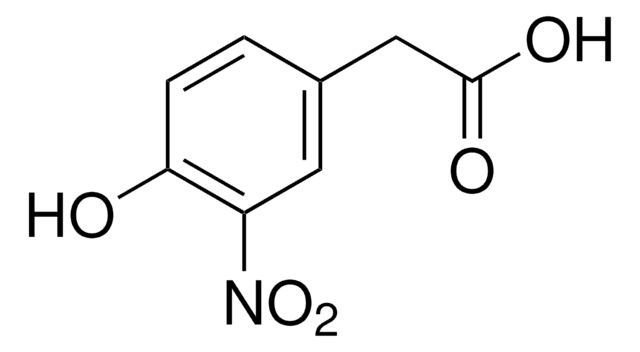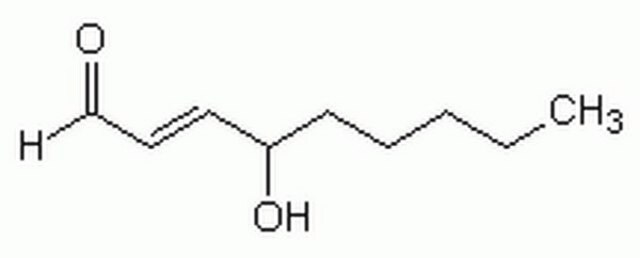About This Item
Recommended Products
form
crystalline
mp
233-235 °C (dec.) (lit.)
SMILES string
N[C@@H](Cc1ccc(O)c(c1)[N+]([O-])=O)C(O)=O
InChI
1S/C9H10N2O5/c10-6(9(13)14)3-5-1-2-8(12)7(4-5)11(15)16/h1-2,4,6,12H,3,10H2,(H,13,14)/t6-/m0/s1
InChI key
FBTSQILOGYXGMD-LURJTMIESA-N
Looking for similar products? Visit Product Comparison Guide
Application
- western blot analysis to quantify the nitrotyrosine levels in mice tissue protein
- Murashige–Skoog medium to treat wild type and mitogen-activated protein kinase 6 (mpk6)-2 mutant seedlings for inferring the connection between nitric oxide (NO) and MPK6 functions in the regulation of mitotic microtubule organization
- immunocytochemistry
Biochem/physiol Actions
related product
Storage Class Code
11 - Combustible Solids
WGK
WGK 3
Flash Point(F)
Not applicable
Flash Point(C)
Not applicable
Personal Protective Equipment
Certificates of Analysis (COA)
Search for Certificates of Analysis (COA) by entering the products Lot/Batch Number. Lot and Batch Numbers can be found on a product’s label following the words ‘Lot’ or ‘Batch’.
Already Own This Product?
Find documentation for the products that you have recently purchased in the Document Library.
Customers Also Viewed
Our team of scientists has experience in all areas of research including Life Science, Material Science, Chemical Synthesis, Chromatography, Analytical and many others.
Contact Technical Service











